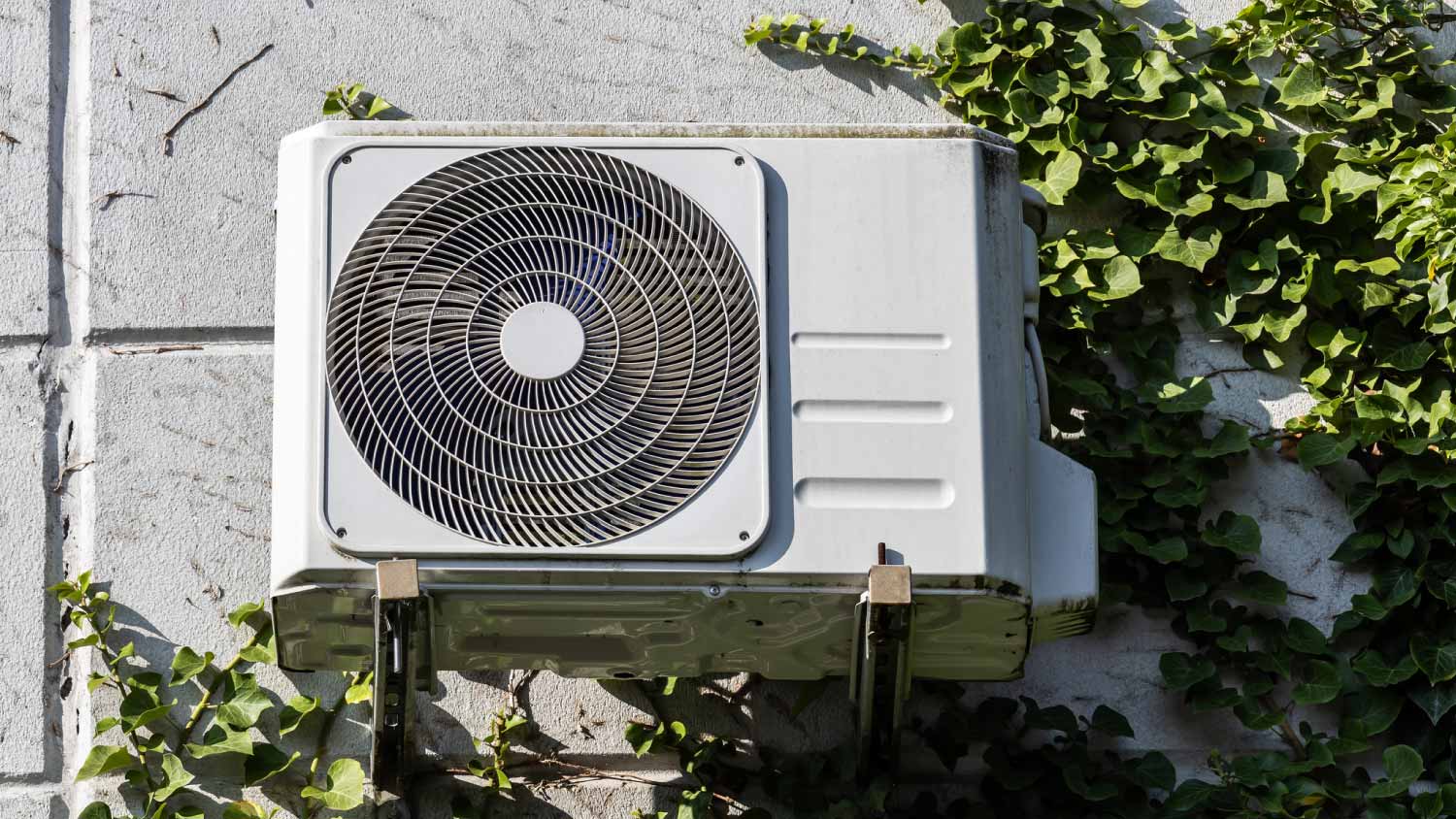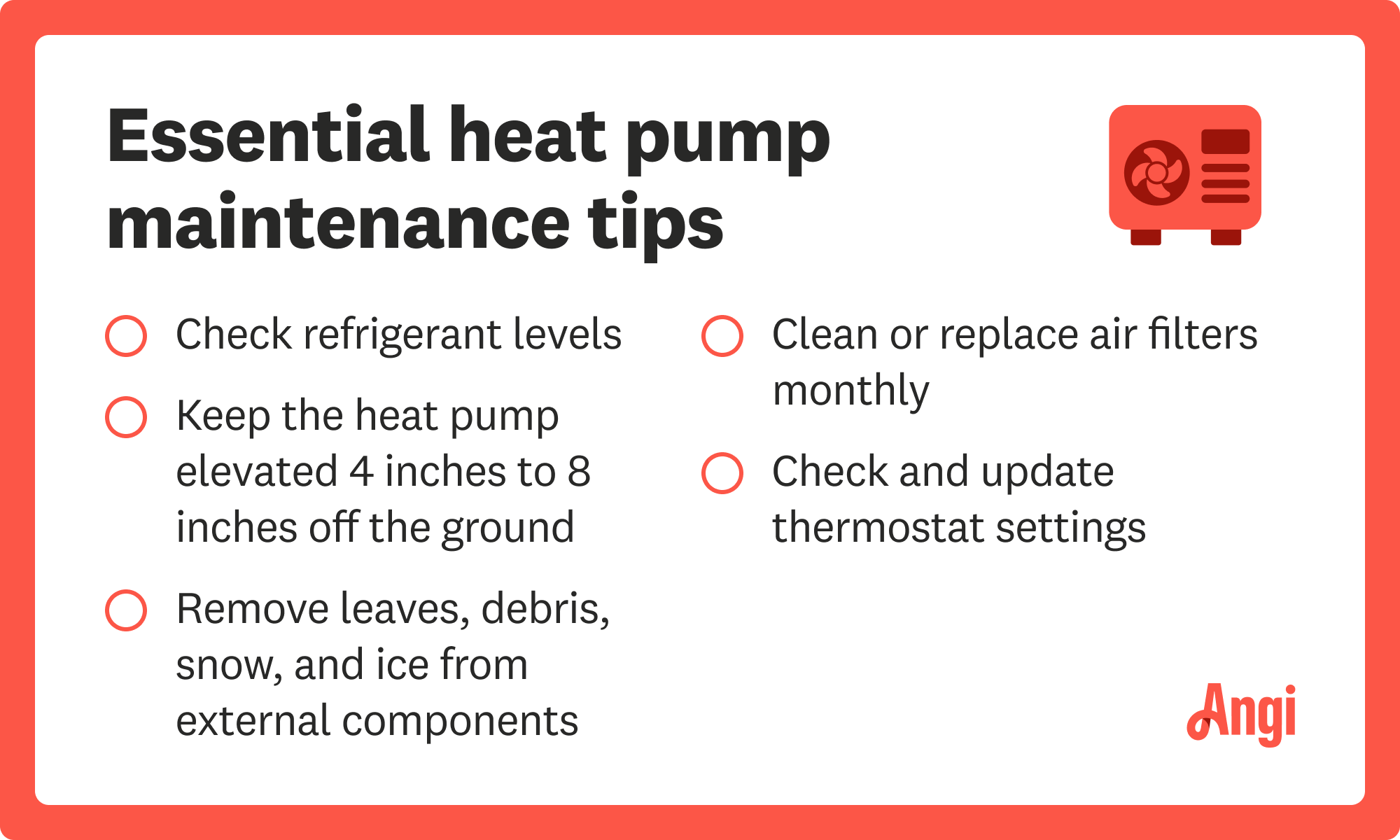
What you’ll pay in Columbus, OH, for furnace repairs depends on many factors. Here’s a breakdown of what can go wrong and the cost to fix those issues.
Emergency heat keeps your home toasty when your heat pump can’t


Emergency heat is from an auxiliary source secondary to a heat pump.
You can activate emergency heat through your home’s thermostat.
Homeowners shouldn’t run emergency heat as a primary source of heat.
Emergency heat may kick in if your heat pump needs repair.
To keep emergency heat from switching on, maintain the heat pump regularly.
A heat pump will keep your home comfortable year-round; however, on occasion, it may switch into emergency, or auxiliary, heat. So, when does a heat pump switch to emergency heat?
This is a last resort option that kicks in if your heat pump isn’t keeping your home warm. Let's take a look at the factors that cause this back-up heat source to switch on and when to hire a heat pump professional.
You may see a setting for “EM heat” on your thermostat. This is the setting controlling your home’s auxiliary heating system. If you have this setting, you likely have a gas, oil, or electric heating system in addition to your heat pump. In colder climates, heat pumps need a secondary source of heat when temperatures drop too low for the heat pump to run at its most efficient.
Your heater taps into this setting when outside temperatures drop too low for it to handle.
Emergency heat isn’t meant to be a primary source of heat in your home. It’s less efficient than the heat pump and will cause your utility bills to soar.

Your heat pump may switch to a supplemental heat system under the following circumstances:
A less efficient heat pump may switch to auxiliary heat because it can’t pull enough energy from the outdoor air to heat your home. This failure may occur in an older heat pump or in colder-than normal temperatures. Heat pumps have an average lifespan of 10 to 15 years, but they can extend to 25 years with proper maintenance. If your unit is on the older side of this timeline, it may be time to replace it.
If the heat pump’s outdoor unit has frozen, it may switch to emergency heat. A frozen pump will enter a defrost cycle to melt ice that has accumulated on it. During that time, it can’t heat your home. To prevent temperatures inside from dropping, the emergency heat system switches on until the defrost cycle is complete.
When a heat pump malfunctions or a component fails within it—for example, when it’s not blowing hot air or its fan is not spinning—the pump will switch to emergency heat. This fail-safe ensures that your home continues to receive heat until the issue is properly addressed.
You can activate the emergency heat setting from your thermostat. This method can be used in situations when the automated system is not working to heat your home. For example, if there’s a mechanical failure that the heat pump’s sensors can’t detect. You should avoid manually activating the emergency heat feature unless it’s absolutely necessary.

To keep auxiliary heat from switching on unnecessarily, the best defense is a good offense. Schedule preventative maintenance appointments for your heat pump system every six months with an heat pump service provider near you.
You can check the system on your own between appointments. Make sure to keep ducts, heat vents, and areas around the outdoor HVAC unit free of debris and clutter. Clean or replace the heat pump filter each month or every other month. It’s best to call in a professional as soon as possible if you notice any issues with your pump.
From average costs to expert advice, get all the answers you need to get your job done.

What you’ll pay in Columbus, OH, for furnace repairs depends on many factors. Here’s a breakdown of what can go wrong and the cost to fix those issues.

What you’ll pay for furnace repairs depends on many factors, including what parts are malfunctioning, where you live, and even the time of day. Here’s a breakdown of what can go wrong with your furnace and the cost to fix those issues.

Heating and cooling system on the fritz? Discover the factors that go into HVAC repair costs and how you can save money on this crucial home update.

Wondering how to bleed a baseboard heater without a bleed valve? Here’s how to remove trapped air the old-fashioned way, with a boiler drain and water replacement.

Is your furnace not blowing hot air? Find out 13 common culprits behind a cold furnace, plus tips for how to get the warm air pumping again.

Not sure if you should repair or replace your furnace? Don’t waste money! Use this guide first to decide on the best strategy for you and your system.